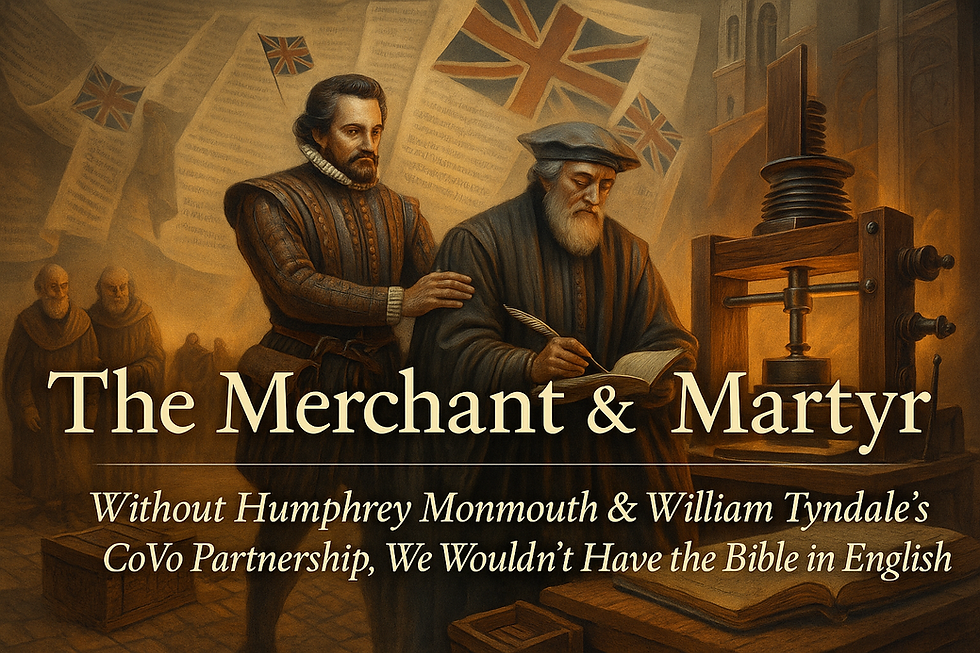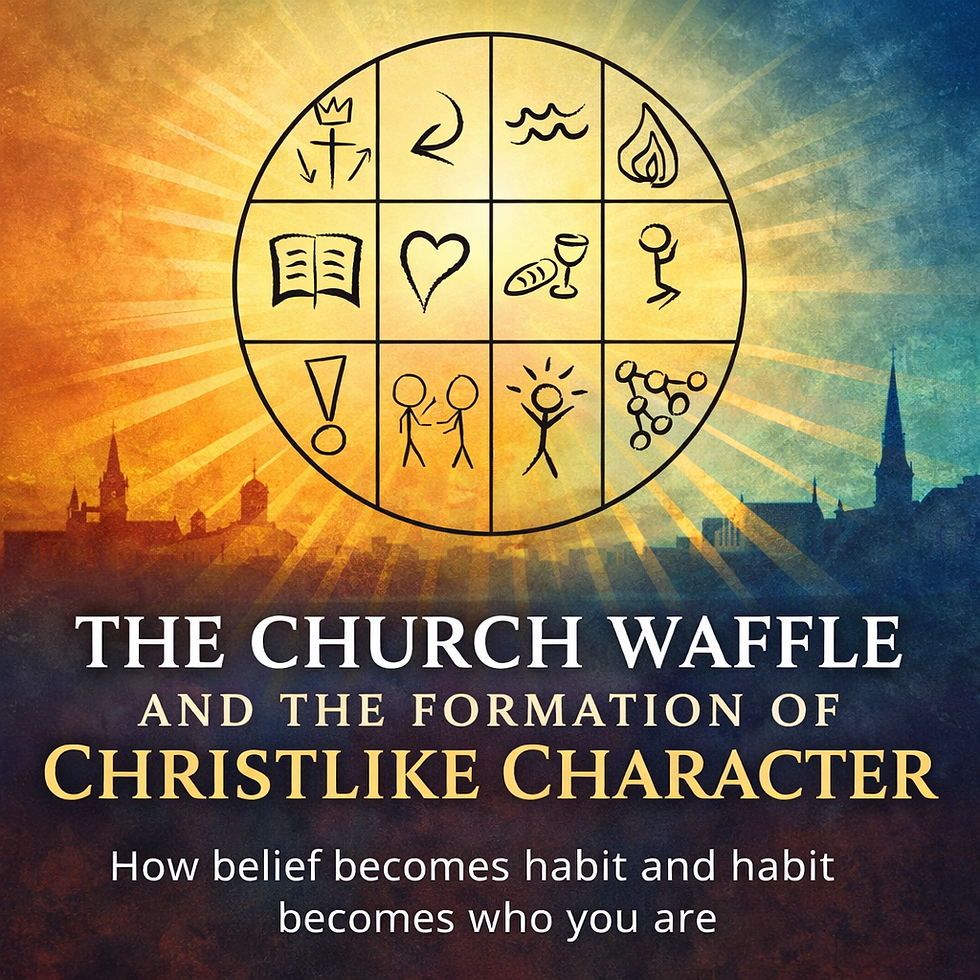The Merchant & the Martyr: Without Humphrey Monmouth & William Tyndale’s CoVo Partnership, We Wouldn’t Have the Bible in English
- Dave Miller

- Aug 7, 2025
- 3 min read
by Dave Miller and Jason Cronkhite

When we think about the heroes who made the English Bible possible, most remember William Tyndale—the brilliant linguist who gave his life to translate the Scriptures so that even “the boy that driveth the plough” might understand them. But behind every Paul is a Barnabas. And behind Tyndale stood a lesser-known but absolutely vital partner: Humphrey Monmouth, a wealthy London cloth merchant whose covocational (CoVo) partnership helped birth one of the most transformative movements in church history.
This is the story of what happens when conviction meets capacity... when calling meets courage... when a businessman opens his home—and his resources—to a reformer on the run.
And because of it, we now read the Bible in English.
The Merchant and the Mission
In the early 1520s, England was spiritually parched. The Scriptures were locked away in Latin—unreadable to the masses. Church leadership, tied closely to political power, held tightly to both Scripture and control. But William Tyndale, a gifted scholar fluent in Hebrew, Greek, and Latin, was convinced that every common person deserved access to God’s Word in their own language.
Tyndale’s passion was clear. But passion alone doesn’t publish a Bible.
Enter Humphrey Monmouth.
Monmouth wasn’t a priest or preacher. He wasn’t a monk or theologian. He was a businessman. A successful cloth merchant who traded across Europe and had the means, connections, and conviction to make a difference. He opened his home to Tyndale and financially supported his work. It was likely in Monmouth’s house in London that Tyndale completed his first English translation of the New Testament from Greek.
This wasn’t just patronage. It was partnership. It was a model of CoVocational mission—a gospel-centered collaboration between a vocational minister and a vocational marketplace leader, both obedient in their calling.
CoVo Before It Had a Name
Monmouth and Tyndale show us that CoVocational leadership isn’t a modern trend—it’s a historic necessity. The early church was filled with partnerships like this. Lydia, the businesswoman in Philippi, hosted and supported Paul. Aquila and Priscilla made tents and planted churches. Throughout history, God has worked through the sacred-secular overlap—because in His Kingdom, no calling is secular.
Tyndale’s genius and courage might have birthed the translation, but without Monmouth’s logistics, finances, and strategic placement in society, that translation would have stayed in hiding—or never happened at all.
In fact, it was Monmouth’s shipping connections that enabled the smuggling of Tyndale’s illegal New Testaments into England, hidden in crates of cloth.
Risk, Cost, and Reward
This partnership wasn’t safe. Tyndale would eventually be betrayed, strangled, and burned at the stake. Monmouth was arrested and imprisoned in the Tower of London for his role in aiding Tyndale. His wealth, reputation, and freedom were on the line—not for his own ambitions, but for the advance of the gospel.
That’s what CoVo leaders do. They leverage their influence and income, their networks and know-how, not just to make a living, but to shape eternity.
Today, we hold English Bibles in our hands because two men—one a scholar, the other a merchant—believed that everyone should be able to read the Word of God for themselves. They gave everything so we could hold the truth.
What’s the Invitation for Us?
There are still “Tyndales” today—pioneering leaders with vision, calling, and skill who need the support and partnership of faithful “Monmouths” to see the mission through. And there are “Monmouths” waiting in boardrooms, shops, and studios who’ve never realized that their business is a battleground for the Kingdom.
We need each other.
CoVocational mission is not just about making room for part-time pastors. It’s about reuniting what we wrongly separated—the sacred and the secular—and stewarding every vocation as holy ground.
Whether you’re in a pulpit or a packing plant, a nonprofit or a neighborhood, the call is the same: use what’s in your hands to serve the One who reigns.
Final Word
Without Humphrey Monmouth’s covocational obedience, Tyndale’s translation may have been just another silenced dream. But because of their partnership, the Word ran free.
May we never underestimate what God can do when His people align their callings in mutual submission to the King of kings.
We don’t all need to be Tyndales.
But someone’s waiting for a Monmouth to believe that their business might be the very thing God uses to change the world.
Join us for the same potential opportunities:





Comments